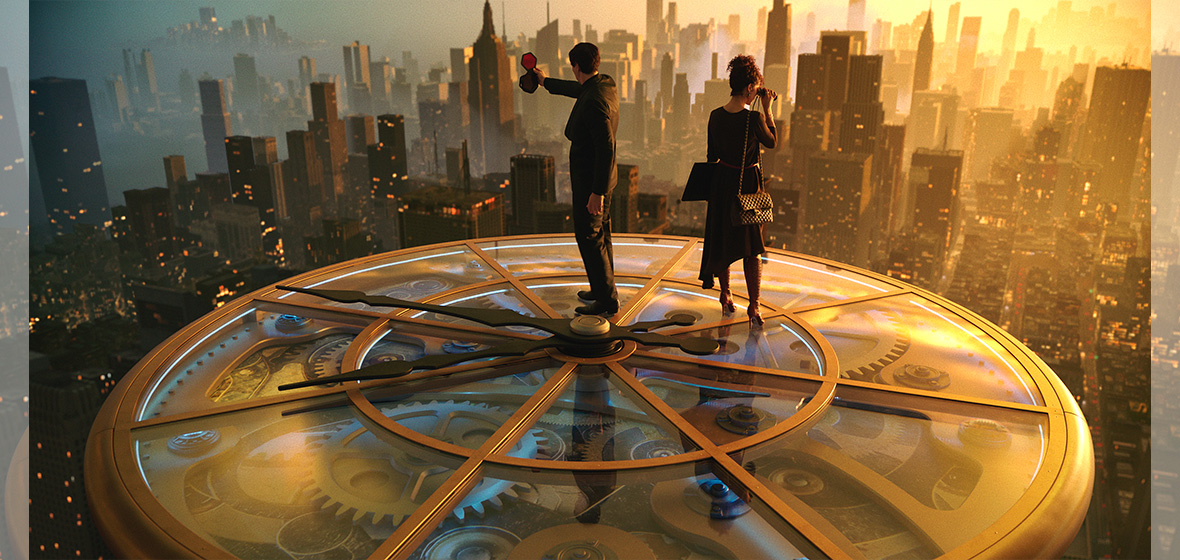The goal of a filmmaker is to convey a message. It’s not entertainment, though people mistake emotionally engaging with a piece of art with the intention of a filmmaker. Every artist wants, first and foremost, to have their say in a platform they can’t be questioned on. Films, paintings, sculptures, and interpretative dances are thesis. It’s how we connect with them that makes them entertaining,
In D. A. Pennebaker’s Bob Dylan documentary Don’t Look Back, there’s a moment that I think about constantly. The context was Dylan starting the fateful British 1965 tour, the one where he left his folk tradition and embraced rock, when a concert-goer shouted “Judas” during the gig. In a press conference, a journalist made the very jejune comment about Dylan performing folk, deemed more artistically valid, instead of merely entertaining rock. Dylan replied, “So do you think anybody who comes to see me is coming for any other reason than entertainment?”
Because that’s the truth. An artist finds a message. An audience is entertained, regardless of the stylistic choices. It’s a contract made between the two. A bad work of art is one where the message falls on deaf ears. A good audience is one willing to meet the artist halfway.
I bring this up because I thought a lot about this quote while watching Francis Ford Coppola’s new (and maybe last) opus, Megalopolis. It is a massive behemoth, four decades in the making, and the director self-financed it. Here is the film with a lot to say, that uses so many artifices that it can confound its audiences. Coppola didn’t make a film to entertain us, but he’s asking us to trust him in this journey, and your enjoyment of this film lies a lot in that tension.
As the subtitle confesses, Megalopolis is a fable set in a fictional, idealised version of New York, bluntly called New Rome. It is a story about an empire crumbling from the top and the people dreaming of a new future. Cesar Catalina (Adam Driver) is a renowned architect working on a unique project to build a new utopia in a decaying metropolis. The city’s Mayor, Cicero (Giancarlo Esposito), opposes the project ideologically, even when his daughter Julia (Nathalie Emmanuel) falls in love with Cesar. Then there’s Wow Platinum (Aubrey Plaza – and yes, those are the character’s names), a TV news host with an appetite for power and money, and Cesar’s jealous hedonist cousin Clodio (Shia La Beouf) who aims to grab power by creating social unrest with a group of unhappy working-class citizens organised by Nazi-coded militia.
All this with heavy-handed Roman metaphors, over-the-top dialogue that verges between Shakespearean and way too earnest (by the time Aubrey Plaza says, “You’re too anal while I’m more oral” as she kneels in front of Driver, I didn’t know if my eyes could roll back any further). Every actor takes the role for granted in complete blind faith in Coppola’s vision.
Plaza and LaBeouf are getting the best out of it, but I appreciate Driver’s dedication in the face of what would probably be a confusing shooting. His character imagines controlling time, spends a whole party scene hallucinating, and has grandiose dialogues that feel like a libertarian high on mushrooms quoting Othello, but he never gives away his character.
Everything feels and looks like an utter mess, but as it progressed, I remained engrossed. Sure, the ending is a bizarre, preachy monologue, and by our modern standards of academia, none of it should work. But it strangely does.
I’ve read comparisons to Ayn Rand’s The Fountainhead, a sociopathic book that contemplates a world where the enlightened deserve all the credit, but Rand wouldn’t like Megalopolis. Coppola’s vision is more optimistic. He doesn’t see Cesar as a messiah but believes in his idea. In a way, Megalopolis is closer to Fritz Lang’s classic Metropolis, which ends (spoiler alert, for a film from 1927) with the working class making a deal with the business class towards a modern utopia. Less seizing and more sharing the means of production.
Megalopolis reframes that ending differently, replacing the working class (in his world, only victims and pawns of political machinations) with the idealist artist and adding the bureaucrat, the politician, who just needs guidance. Coppola doesn’t want kudos for his art; he wants his art to outlive his person.
Hard to say if this decay of modern society is a warning or wishful thinking for Coppola. He shoots the indulgent side of the rich with glitzy gold, embroiled in sex and corruption. Meanwhile, the poor live in a dark underworld surrounded by statues of fallen Gods and heroes. It’s all very heavy-handed, but then again, so are fables.
And that’s fine, but it still demands a lot of suspension of disbelief from his audience. There’s a moment when Julia asks to see a model of Cesar’s utopia and is presented with a literal pile of garbage. “Close your eyes and tell me what you see”, Driver tells her, and as she accepts the offer, she suddenly sees what he means. It’s a naff quote, but one directed at the audience – Coppola asks us to look past our preconceived idea of what makes a prestigious quality picture and meet him where his idea is. Close your eyes and see.
That level of commitment may be asking too much of an audience, and I can’t fault anyone who doesn’t want to participate if they don’t see it as entertaining. But that blind dedication, that leap of faith, can extract so much more.
I cannot recommend Megalopolis. I can’t even give it a rating. To enjoy it, you need to know what it stands for. How we got here. How Coppola worked for decades on the script that no one wanted to produce. How he sold his vineyard at the age of 85 and poured all his funds into financing this. This gigantic megalomaniac vanity project is about finding utopia if we listen more to megalomaniac vanity artists. I liked it enough to want to watch it again. But if you consume this without context, you may misread its artifice as kitsch. And even without context, you have the prerogative of not accepting Coppola’s invitation. In that case, you’re setting yourself for some long 140 minutes.
Verdict not reached; no further proceedings.
For every brave cinephile who trusts a filmmaker so much, they are willing to go wherever they want to. Did you enjoy the last five Godard films? Are you a fan of David Lynch’s Inland Empire? Then this is for you. Everyone else may need some preparation before taking the plunge.




